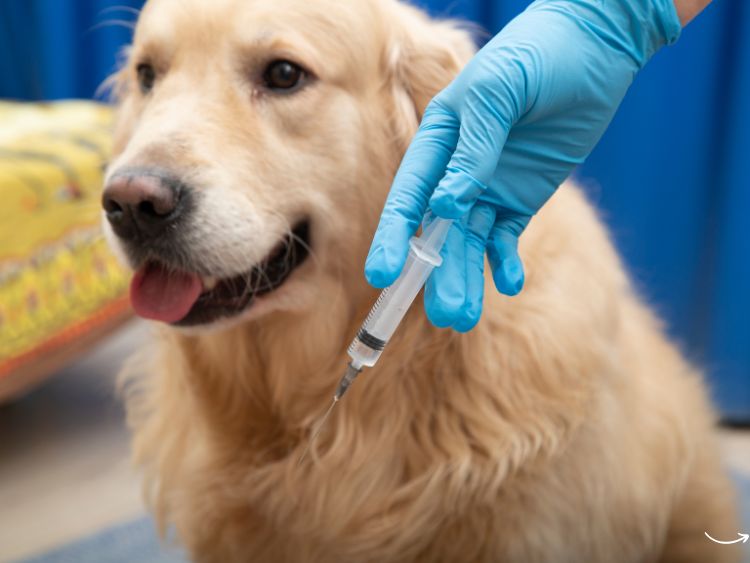Leptospirosis, often referred to as “lepto,” is a bacterial infection that can affect dogs, humans, and other animals. It’s a serious disease that can lead to severe health issues and even be fatal. To safeguard your beloved pet, understanding the importance of the lepto vaccination for dogs is crucial. In this comprehensive guide, we will delve into everything you need to know about lepto, the vaccination process, and how it benefits your dog.
What is Leptospirosis?
Leptospirosis is caused by the bacteria Leptospira, which is found in soil and water worldwide. Dogs can contract the disease through direct contact with contaminated water, soil, or urine from infected animals. The bacteria can enter the body through mucous membranes or broken skin.
Symptoms of Leptospirosis in Dogs
Leptospirosis can present a wide range of symptoms, making it sometimes challenging to diagnose. Common symptoms include:
- Fever
- Vomiting
- Diarrhea
- Lethargy
- Muscle pain
- Jaundice (yellowing of the skin and eyes)
- Increased thirst and urination
In severe cases, leptospirosis can lead to kidney or liver failure, and it can be fatal if left untreated.
Importance of Lepto Vaccination for Dogs
The lepto vaccination is essential in preventing leptospirosis in dogs. This vaccine not only protects your dog from contracting the disease but also reduces the risk of transmission to humans and other animals.
How Does the Lepto Vaccine Work?
The lepto vaccine stimulates the dog’s immune system to produce antibodies against the Leptospira bacteria. When exposed to the bacteria, the dog’s immune system can recognize and fight off the infection more effectively.
Types of Lepto Vaccines
There are two main types of lepto vaccines available for dogs:
- Monovalent Vaccine: This vaccine targets a single serovar of Leptospira.
- Multivalent Vaccine: This vaccine targets multiple serovars, providing broader protection.
Most veterinarians recommend the multivalent vaccine as it offers more comprehensive coverage against various strains of the bacteria.
When Should Dogs Receive the Lepto Vaccine?
Puppies can receive their first lepto vaccine as early as 8-12 weeks of age, followed by a booster shot 2-4 weeks later. Adult dogs that have not been previously vaccinated will need an initial dose followed by a booster. After the initial series, annual boosters are recommended to maintain immunity.
Side Effects of the Lepto Vaccine
Like any vaccination, the lepto vaccine can cause side effects, though they are generally mild and temporary. Common side effects include:
- Mild fever
- Swelling at the injection site
- Lethargy
- Decreased appetite
Serious side effects are rare but can include allergic reactions. If your dog shows signs of an allergic reaction, such as swelling of the face or difficulty breathing, seek veterinary care immediately.
Risk Factors for Leptospirosis
Certain factors can increase the risk of your dog contracting leptospirosis:
- Geography: Dogs living in or frequently visiting areas with standing water, such as lakes, rivers, or swamps, are at higher risk.
- Lifestyle: Dogs that spend a lot of time outdoors, especially in rural or wooded areas, are more likely to be exposed.
- Climate: Leptospirosis is more common in warm, wet climates where the bacteria can thrive.
Benefits of the Lepto Vaccination for Dogs
Vaccinating your dog against leptospirosis has several benefits:
- Protection from Serious Illness: The vaccine significantly reduces the risk of severe illness and death caused by leptospirosis.
- Public Health: Vaccinated dogs are less likely to spread the bacteria to humans and other animals, protecting public health.
- Peace of Mind: Knowing your dog is protected allows you to enjoy outdoor activities without constant worry about potential exposure.
FAQs About Lepto Vaccination for Dogs
What happens if my dog misses a lepto booster shot?
If your dog misses a booster shot, it’s important to consult with your veterinarian. They can provide guidance on whether a single booster is sufficient or if the initial series needs to be restarted.
Can the lepto vaccine cause leptospirosis in dogs?
No, the lepto vaccine cannot cause leptospirosis. The vaccine contains inactivated or killed bacteria that stimulate the immune response without causing the disease.
How long does immunity last after the lepto vaccination?
Immunity from the lepto vaccine typically lasts for one year, which is why annual boosters are recommended.
Is the lepto vaccine safe for all dogs?
The lepto vaccine is generally safe for most dogs. However, some breeds, particularly small breeds, may be more prone to side effects. Discuss any concerns with your veterinarian.
Can leptospirosis be treated?
Yes, leptospirosis can be treated with antibiotics, especially if caught early. Supportive care, such as intravenous fluids and medications to manage symptoms, may also be necessary.
Summary
Leptospirosis is a serious disease that poses a significant threat to dogs and humans alike. Vaccinating your dog against leptospirosis is a critical step in safeguarding their health and well-being. The lepto vaccine provides effective protection, reduces the risk of transmission, and offers peace of mind to pet owners. By staying informed and proactive, you can ensure your furry friend remains healthy and happy.
Authoritative Links on Lepto Vaccination for Dogs
For more information on leptospirosis and the lepto vaccination for dogs, refer to these authoritative sources:
- American Veterinary Medical Association (AVMA): https://www.avma.org
- Centers for Disease Control and Prevention (CDC): https://www.cdc.gov
- World Health Organization (WHO): https://www.who.int
Protecting your dog from leptospirosis through vaccination is one of the best decisions you can make for their health. Stay informed, consult your veterinarian, and take proactive steps to ensure your furry companion’s well-being.

